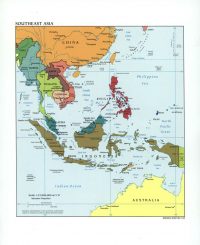News
10 tips to avoid traveller’s diarrhoea on your next overseas trip
March 15, 2019
‘Traveller’s diarrhoea is the most common medical complaint for overseas travellers and while it is usually not life threatening, it can significantly disrupt your holiday plans,’ said Dr Julie Blaze.
Traveller’s diarrhoea can occur shortly after arrival, when your body is exposed to new and unfamiliar bacteria and viruses.
Most cases of traveller’s diarrhoea are caused by bacteria such as E. coli, shigella and salmonella. Viruses like norovirus and rotavirus cause the same symptoms. Parasites such as giardia lamblia are another cause.
Symptoms
- Stomach cramps, bloating or nausea
- Diarrhoea
- Mild temperature
- Weakness
- Loss of appetite
- Vomiting.
10 tips to avoid traveller’s diarrhoea
- Only drink boiled or bottled water.
- Wash your hands or use hand sanitiser before eating.
- Order drinks without ice if you are unsure if tap water was used to make the ice.
- Be cautious about where you get your fruit and vegetables from and wash them with bottled or boiled water.
- Use bottled water for brushing your teeth and don’t drink the shower water.
- Only eat freshly cooked food (avoid food that has been sitting in the sun or food from buffets).
- Avoid eating raw or rare meat or fish.
- Ensure crockery and cutlery is dry before use.
- Avoid unpasteurized dairy products, shaved ice or soft-serve icecream.
- Another option is to speak with your doctor about the pros and cons of preventative medications including the oral cholera vaccine (Dukoral) and over the counter products (such as Travelan).
‘The old saying is if you can’t peel it, boil it or cook it, forget it,’ said Dr Blaze. ‘That sounds easy but is actually quite hard to adhere to.’
Treatment
Oral rehydration is the key to recovering from mild to moderate diarrhoea. Rehydration products (eg. Gastrolyte) can be brought from Australia or purchased overseas in powder or tablet form. These need to be dissolved in the correct quantity (usually a litre) of bottled or boiled water.
Once your appetitive returns, start with small, light meals and gradually build up to a normal diet. Avoid dairy and sugary or fatty foods, as well as caffeine and alcohol.
For mild cases, anti-motility or ‘stopper’ drugs like Imodium and Lomotil can be used for up to 48 hours to relieve symptoms.
For more severe diarrhoea, that lasts for more than 2 – 3 days, with fevers above 38°C, cramps causing severe pain, or blood in your bowel motions then antibiotic treatment may be required.
Travel Medicine Clinic
You can book into our specialised travel medicine clinic led by Dr Blaze on Monday evenings from 4-8pm by appointment. Alternatively, you can book a travel medicine consultation with other general practitioners at other times.
We stock travel medicine kits which include medications for traveller’s diarrhoea and antibiotics. We also have an extensive range of travel vaccinations (including Yellow Fever), malaria tablets and insect repellents.
A full list of travel vaccines and estimated costs is on our website.

